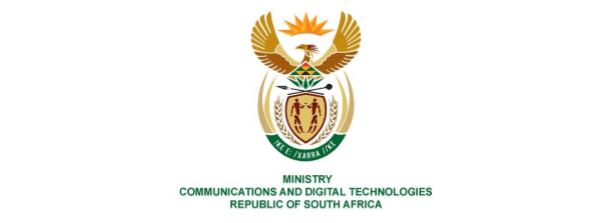Keynote Address at Nedbank EEBI JCSE Webinar
Programme Director
Esteemed guests
Ladies and gentlemen
I am singularly honoured to address this august gathering hosted by Nedbank as a signatory to the “Contract for the Web” initiative. When the father of almost all disciplines we study today namely Aristotle, developed the Model of Communication, little did he know that his genius would remain the point of reference until today when communication has grown to be an essential ingredient of normal life. Nor did he imagine that evolution of communication would reach a stage where today we talk about Internet of Things, Artificial Intelligence and all the sophistications of the 4IR. I am pleased to note that Nedbank deemed it proper to joint when World Wide Web Foundation launched the 'Contract for the Web' in November 2019. Of the nine principles of the Contract I will limit my remarks to Principle 4: i.e. Make the internet affordable and accessible to everyone.
Launching the Contract Tim Berners-Lee, the inventor of the World Wide Web said “The power of the web to transform people’s lives, enrich society and reduce inequality is one of the defining opportunities of our time. But if we don’t act now-and act together - to prevent the web being misused by those who want to exploit, divide and undermine, we are at risk of squandering that potential."
One of the motivating factors behind Tim Berners-Lee’s drive to launch the Contract is what he perceived as constant threat against the web from wrong doers globally. The more the people of the world use the internet the more exposed they are to this threat if collective effort is not made by people wherever they are. SA is not exception to this. According to the Stats SA’s General Household Survey (GHS), the proportion of households who use only cellular phones as a means of communication steadily increased to 89.5% in 2018. This shows greater reliance on cellular phones by households. At the national level, the GHS reported that in 2018 the proportion of Households with access to Internet was at 64.7%. while more than half (60%) of Households nationally had access to the Internet using mobile devices, with the majority of this access accounted for by Households living in metropolitan areas sitting at 67%. Mobile devices are also the most used means of accessing the internet by Households in rural areas nationally at 45%.
Regarding Broadband coverage ICASA reported that national population coverage for 3G increased from 99.5% in 2018 to 99.7% in 2019. On the other hand national population coverage for 4G/LTE increased from 85.7% in 2018 to 92.8% in 2019. Fibre-to-thehome/building Internet subscriptions increased by 28.8% in 2019 to over 1.6 million subscriptions. For a period of 5-years, fixed broadband subscriptions increased significantly by 29.4%. Over the same period, Fibre-to-the-home/building Internet subscriptions increased by 168.2%. Currently the fibre infrastructure is being rolled out, primarily in major metropolitan areas. South Africa has abundant international internet bandwidth (Mbps) capacity. The capacity has increased by 36.3% in 2019. The constraints remain largely on the last-mile access. What concerns me most is that the expansion of high speed fibre infrastructure into rural areas is noticeably lagging behind. An occasion like this serves as a reminder that at no stage should cyber security be taken for granted.
International benchmarks
According to OOKLA the global speed test ranking for South Africa was at 78 out of 174 for fixed broadband and 55 out of 138 for mobile broadband in July 2020, indicative of globally competitive broadband speeds.
Investment
R38 billion was invested in the telecommunications industry in 2019.
Improving internet access
In a country like ours where every aspect of life is color zoned and characterized by a great divide between the rural and urban areas technological advancement should be used to leapfrog those areas that are left behind. It is in this context that I implore all stakeholders in the industry to work together in shaping up a SA we will all be proud of. The corporates, government and civil society must work together to eliminate the digital divide. In this regard there are baby steps worth noting. A good example has been set by the country’s two largest mobile operators, Vodacom and MTN, who cut their mobile data prices by up to 20%-50%. It must however be noted that this was done not in response to COVID-19, but following a twoyear investigation by the competition commission into the high mobile data costs which hampered access for many citizens. Most service providers have zero-rated many learning sites, meaning that they can be accessed for free. Many fibre providers in the country also upgraded the speed of the customers’ lines during the lockdown, although this will primarily benefit those in the higher socio-economic bracket.
In ensuring that the digital divide between urban and rural communities is bridged government is currently implementing the National broadband policy “SA Connect”. The first phase of the project has prioritised connectivity of the 970 government facilities, health care and schools in the underserviced 8 identified District municipalities. And the department is currently conducting a feasibility study for funding SA Connect Phase 2 which would cover the rest of the country. This study will be completed by December 2020. It is envisaged that this will result in cost effective and efficient broadband roll out models and funding mechanisms.
Rapid deployment of infrastructure
The development of a Rapid Deployment policy as required under section 22 of the ECA has taken longer than we envisaged. Practical steps have, however, been taken to establish a rapid deployment coordinating committee and to develop the required relationships with the Department of Co-operative Governance and Traditional Affairs (COGTA) and the South African Local Government Association (SALGA). The need to coordinate the deployment of electronic communications networks proved to be an imperative in the face of the COVID-19.
In conclusion once more I call upon all stakeholders to work collaboratively for the common good. 4IR is an era of collaboration, solidarity and UBUNTU. Experience has shown us that none of us acting in isolation will win the battle of survival in the 4IR.
Thank you.
Download document here: Keynote Address at Nedbank EEBI JCSE Webinar




